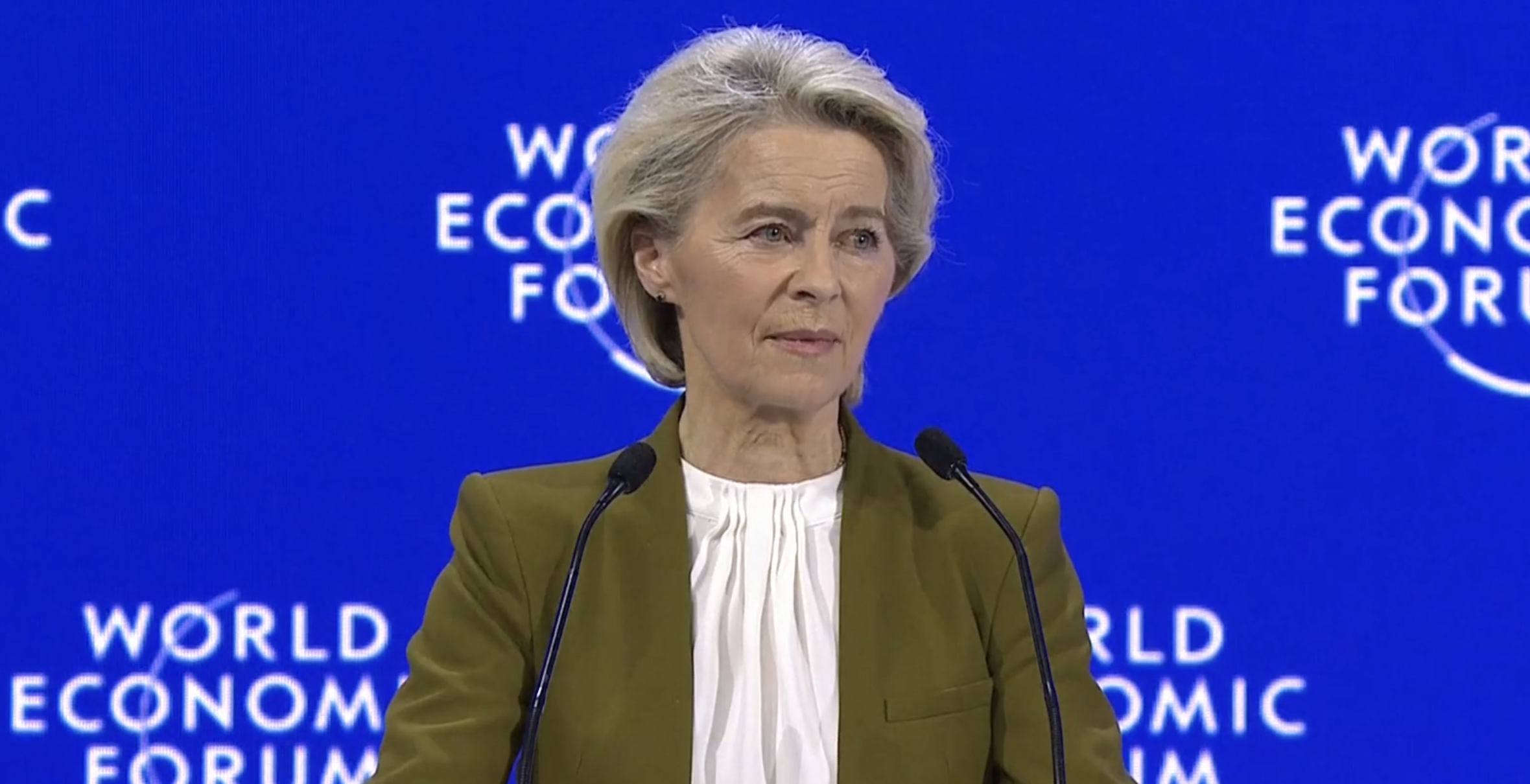At $1tn in market value, the UK tech industry is the third most valuable in the world after the US and China. For a decade, UK tech has consistently received the most investment out of any European country, and its 50 unicorns account for almost a third of Europe’s 166-strong herd.
But nearly seven years after the Brexit vote, there’s a sense among founders and investors that the UK government hasn’t plugged the gaps left by losing access to European support, and is “freeriding” on past successes. They say the country’s also lacking an organisation (independent of the government) to champion tech and innovation and entice more international investors.
Meanwhile, the French government’s pro-tech crusade is paying off, with 36 unicorns (up from four in 2015) and increasing international investment.
This, coupled with a string of new tech funding initiatives that have been announced in Brussels, “could hamper the future growth of VC valuations and investment flows in the UK”, says Nalin Patel, private capital analyst at Pitchbook.
“Early signs of the gap [between the UK and France] closing are on the horizon.”
So is the UK losing its European tech lead?
Funding
As it stands, the UK still attracts almost double the amount of VC funding of France, which is the second best-funded tech market in Europe. In 2022, VCs invested $31bn in UK startups and $15.4bn in French startups, according to Dealroom.
But amid a slowdown in tech funding last year, France was the only major European startup ecosystem to see tech funding increase — up by a respectable 8%. At the same time, tech funding in the UK and Germany saw sharp drops of more than 20%.
VC deals in France have also been on the rise since Brexit. In the last five years, the median startup pre-money valuation in France and Benelux has grown at a higher compound annual growth rate (CAGR) than in the UK and Ireland at both Series A and B, where it’s grown by 22% in France vs 10.4% in the UK, and for Series C and later where it’s grown by 23.2% in France vs 9.5% in the UK.
Many say this represents, in part, the fruits of the French government’s tech push. President Macron has vowed to make France a “startup nation”. Over the past decade, the French government has been one of the most interventionist in Europe when it comes to increasing investment into its domestic tech scene.
Shot in the foot
UK prime minster Rishi Sunak has made a similar promise: to make the UK a “science and technology superpower”. But founders say that the UK government’s policies are actually hampering the startup ecosystem.
Losing Horizon Europe funding
Before Brexit, researchers at UK universities were huge benefactors of EU grants, winning around £1bn a year from the bloc’s funding programmes. But since 2020, the UK has been left out of the EU’s flagship programme, Horizon Europe, as the UK government and Brussels battle over the Northern Ireland protocol. Meanwhile, French companies have been the biggest benefactors of the latest Horizon scheme, securing €447m in funding in its first two years.
This has had huge implications for scientific research at UK universities. To take one example, University College London has seen its funding drop from €412m over the last seven years of Horizon to just €4m in the last two-year programme. This has discouraged some academic talent from moving to — or sticking around in — the UK.
“The big problem is there hasn’t been a plan from the UK government for replacing this money with more,” Tom Adeyoola, cofounder of Extend Ventures, who also co-authored the Labour Party’s recent startup review, tells Sifted.
“Because we’ve been so focused on unhooking things from Brexit, we’ve started going backwards and reverting to an austerity mindset, rather than filling the holes with new investment.”
No equivalent to Bpifrance
European governments have been supplementing this support at the national level as well. In France, that standard is borne by state investment bank Bpifrance, which last month pledged another €500m for deeptech startups. One of the most active investors in Europe, it accounted for 24% of the total raised by French startups last year.
It’s miles more active than British Business Bank (BBB) and Innovate UK, the nearest equivalents in Britain — state entities set up to fund tech investors (BBB) and companies (Innovate UK).
Though not directly comparable to Bpifrance, the British Business Bank made £350m in capital commitments in the twelve months to March 31, 2022, its most recent reporting period. Innovate UK’s total budget is currently £667m, which is set to be upped to £1bn by 2024 to 2025.
Cutting R&D relief
The biggest point of contention right now when it comes to the UK government’s funding of tech? Cutting R&D tax credits, which were a lifeline for many startups. In 2000, the UK government established an R&D tax relief scheme that allows founders to claim back part of the money spent on R&D, including payroll, contractors, software and prototype materials, as a tax relief or cash credit — all in the name of incentivising scientists to commercialise their research in the UK.
UK companies claimed £6.6bn such relief for R&D in 2020-21 — which the government feared could rise to £8.9bn by 2027-28, based on forecasts by the Office for Budget Responsibility. These same forecasts now say the proposed cuts will save the UK £1.3bn a year by 2027-28.
But the proposed cuts have founders fearing bankruptcy and looking abroad for places to conduct their research more affordably. Meanwhile in France, the government has been steadily increasing the generosity of its R&D tax support for SMEs since 2004, according to OECD statistics.
Talent
Investors and founders worry that all these changes may jeopardise the UK’s ability to continue to attract international tech talent. Those fears were bolstered in recent weeks when Tech Nation — the body that ran the UK’s tech visa programme — confirmed that the government would not be renewing its contract, putting the future of the visa programme in jeopardy.
Since then, the Home Office has said it’s working with Tech Nation to ensure applications for its Global Talent visa are unaffected while the startup organisation seeks an asset sale. A spokesperson for the Home Office tells Sifted that the government is exploring “the long-term changes necessary so the UK can continue to benefit from the brightest and best living and working here”.
France launched its own tech visa programme in 2017, which is considered as one of the "friendliest" such schemes in Europe — although it’s still relatively small.
UK founders and investors were offered some reprieve when, a day after the Tech Nation news, the UK government announced the formation of a new department for science and tech. But they tell Sifted they want this to be promptly followed by tangible investment, as the series of funding cuts have sent a message of abandonment.
“The biggest thing I’ve noticed recently is this change in sentiment,” Ed Bramwell, founder of a fintech startup in stealth, tells Sifted.
“A couple of years ago, there was still a bit of a Brexit opportunity hangover, where the government seemed intent on building an ecosystem that would stand alone as a competitor to Silicon Valley.
“But recently with this string of changes, it seems that the government’s words are saying one thing but its actions are going in the complete other direction.”
La French Tech
So what would make UK founders feel like the government has their back?
Several UK founders tell Sifted they’d like to see an equivalent to La French Tech established in the UK. La French Tech is the government’s startup agency, with its own separate budget, and works with founders, investors, and — crucially — foreign companies looking to come to France. A lot of its work can be classed as simply marketing French tech well.
Founders say a UK version of this body could be tasked with two things: setting up multi-partied discussions with founders, investors, scientists and universities; and getting closer to Europe to work out how the UK can partner with the bloc again on innovation — particularly in science and deeptech.
But crucially, they want it to be separate from government departments, so that it can make progress beyond election cycles.
“As it stands, the UK doesn’t have any measures that will slow the decay of innovation,” startup adviser Claire Trachet says.
“We’re now at a crossroads where the government needs to quickly invest time, money and education in an entity that asks: what will the UK tech sector look like in the next 10 years?”
Amy O’Brien is Sifted’s fintech reporter. She tweets from @Amy_EOBrien and writes our fintech newsletter — you can sign up here.



